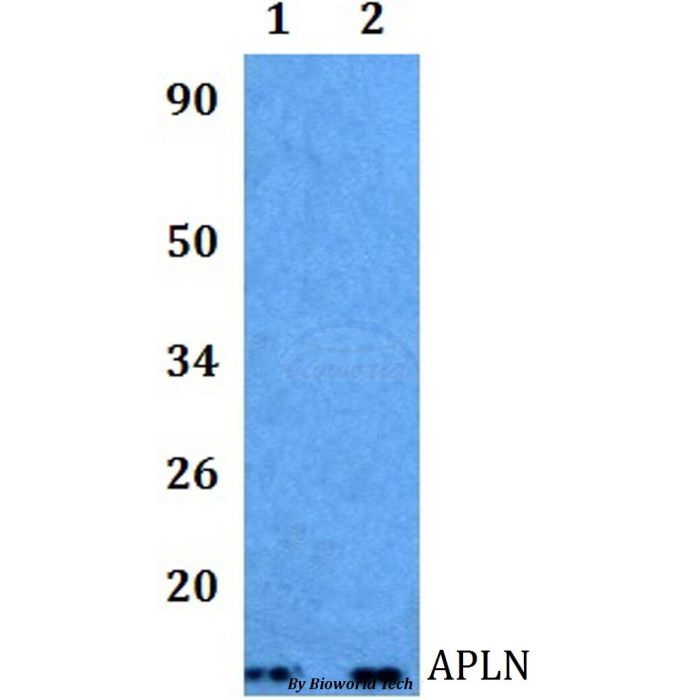APLN polyclonal, anti-human
€305.00
In stock
SKU
BS60997
Background:
Apelin (APEL), an endogenous ligand for APJ, is an alternate coreceptor with CD4 for HIV-1 infection. This secreted protein inhibits HIV-1 entry into cells that coexpress APJ and CD4. By proteolytic processing of the peptide precursor, several different active peptides may be produced. Apelin-36, one such inotropic peptide, is being investigated as a potential plasma marker of cardiopulmonary disease. Apelin is highly expressed in brain, mainly in the thalamus, frontal cortex, hypothalamus and midbrain. Apelin is also secreted by the mammary gland into the colostrum and milk. Oral intake of apelin (in milk and colostrum) may be important in the modulation of the immune responses in neonates and newborns. Apelin has also been found to be a potent stimulator of cardiac contractility and may function in the regulation of the cardiovascular system.
Alternative Name:
Apelin, APJ endogenous ligand, Apelin-36, Apelin-31, Apelin-28, Apelin-13, APLN, APEL
Application Dilution: WB: 1:500~1:1000
Specificity: APLN polyclonal antibody detects endogenous levels of APLN protein.
Immunogen:
A synthetic peptide corresponding to residues in Human APLN.
MW: ~ 9 kDa
Swis Prot.: Q9ULZ1
Purification & Purity:
The antibody was affinity-purified from rabbit antiserum by affinity-chromatography using epitope-specific immunogen and the purity is > 95% (by SDS-PAGE).
Format:
1 mg/ml in Phosphate buffered saline (PBS) with 0.05% sodium azide, approx. pH 7.3.
Storage:
Store at 4°C short term. Aliquot and store at -20°C long term. Avoid freeze-thaw cycles.
For research use only, not for use in diagnostic procedure.
Apelin (APEL), an endogenous ligand for APJ, is an alternate coreceptor with CD4 for HIV-1 infection. This secreted protein inhibits HIV-1 entry into cells that coexpress APJ and CD4. By proteolytic processing of the peptide precursor, several different active peptides may be produced. Apelin-36, one such inotropic peptide, is being investigated as a potential plasma marker of cardiopulmonary disease. Apelin is highly expressed in brain, mainly in the thalamus, frontal cortex, hypothalamus and midbrain. Apelin is also secreted by the mammary gland into the colostrum and milk. Oral intake of apelin (in milk and colostrum) may be important in the modulation of the immune responses in neonates and newborns. Apelin has also been found to be a potent stimulator of cardiac contractility and may function in the regulation of the cardiovascular system.
Alternative Name:
Apelin, APJ endogenous ligand, Apelin-36, Apelin-31, Apelin-28, Apelin-13, APLN, APEL
Application Dilution: WB: 1:500~1:1000
Specificity: APLN polyclonal antibody detects endogenous levels of APLN protein.
Immunogen:
A synthetic peptide corresponding to residues in Human APLN.
MW: ~ 9 kDa
Swis Prot.: Q9ULZ1
Purification & Purity:
The antibody was affinity-purified from rabbit antiserum by affinity-chromatography using epitope-specific immunogen and the purity is > 95% (by SDS-PAGE).
Format:
1 mg/ml in Phosphate buffered saline (PBS) with 0.05% sodium azide, approx. pH 7.3.
Storage:
Store at 4°C short term. Aliquot and store at -20°C long term. Avoid freeze-thaw cycles.
For research use only, not for use in diagnostic procedure.
| Is Featured? | No |
|---|
Write Your Own Review

